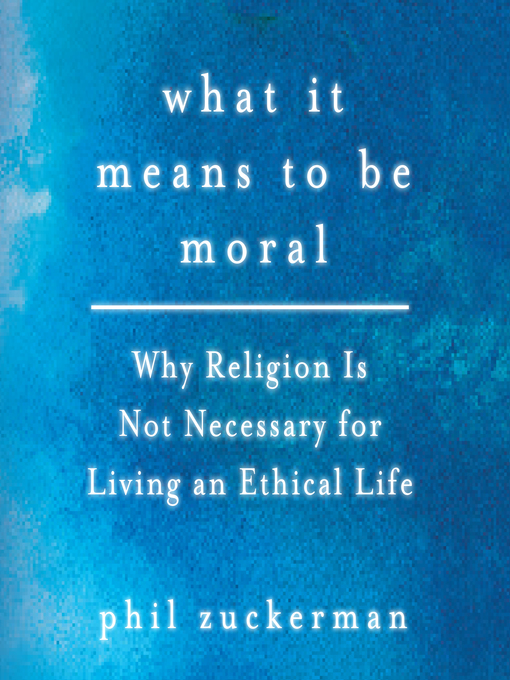What It Means to Be Moral
Why Religion Is Not Necessary for Living an Ethical Life
-
Creators
-
Publisher
-
Release date
September 10, 2019 -
Formats
-
OverDrive Listen audiobook
- ISBN: 9781684576241
- File size: 339104 KB
- Duration: 11:46:27
-
-
Languages
- English
-
Reviews
-
Publisher's Weekly
June 24, 2019
Sociologist Zuckerman (Society Without God) presents a prodigiously well-supported argument against religion in this meticulous but narrow work. Zuckerman concedes that people of faith do much good in the world, but they can also do bad, specifically the “more dogmatic fundamentalists” whose regressive politics are oppressive and hypocritical. Moving the aim implied by his subtitle, he claims that “it is theism, rather than religion... that comprises the true target of this book.” Theism, in his argument, is inherently not loving and compassionate, since God’s creations include as much misery as joy—he cites smallpox, which has killed 300 million people throughout history, as a primary example. He concludes that basing morality upon such a cruel deity makes morality arbitrary. Zuckerman lines up all the arguments against belief from the well-known Socratic dialogue, through the Enlightenment philosophers, and into the modern era. After exploring the history of religious skepticism and atheism, he presents seven “secular virtues”—freethinking, living in reality, “here-and-nowness,” empathy, cosmopolitanism, acceptance of existential mystery, and scientific empiricism—and explores how they can form the secular solution to immorality. Unfortunately, Zuckerman never seriously grapples with the allure or longevity of religious traditions, which limits the scope of his argument. While this is a comprehensive introduction to religious skepticism, Zuckerman’s conclusions will likely only convince fellow secularists.
-
Formats
- OverDrive Listen audiobook
subjects
Languages
- English
Loading
Why is availability limited?
×Availability can change throughout the month based on the library's budget. You can still place a hold on the title, and your hold will be automatically filled as soon as the title is available again.
The Kindle Book format for this title is not supported on:
×Read-along ebook
×The OverDrive Read format of this ebook has professional narration that plays while you read in your browser. Learn more here.

